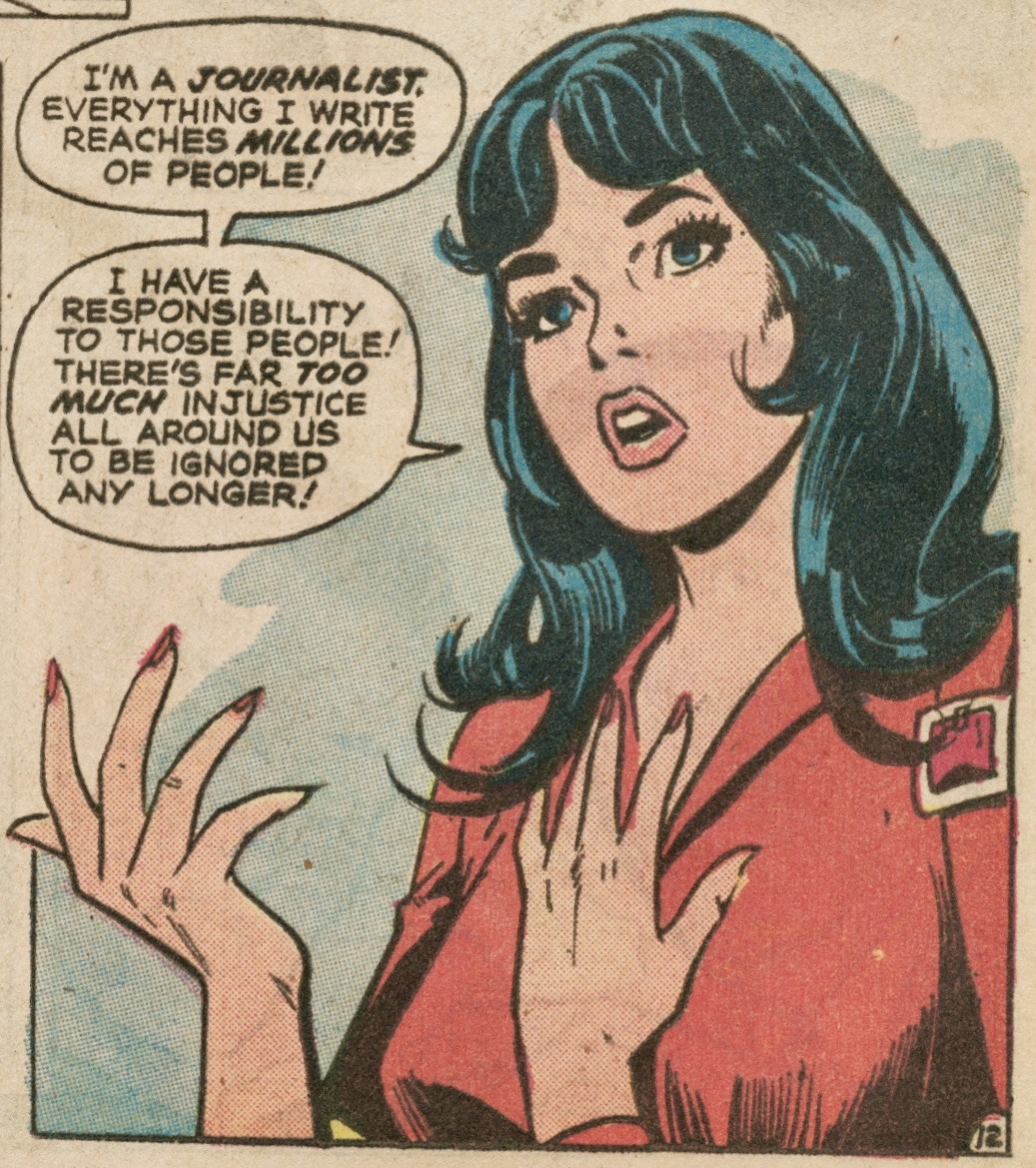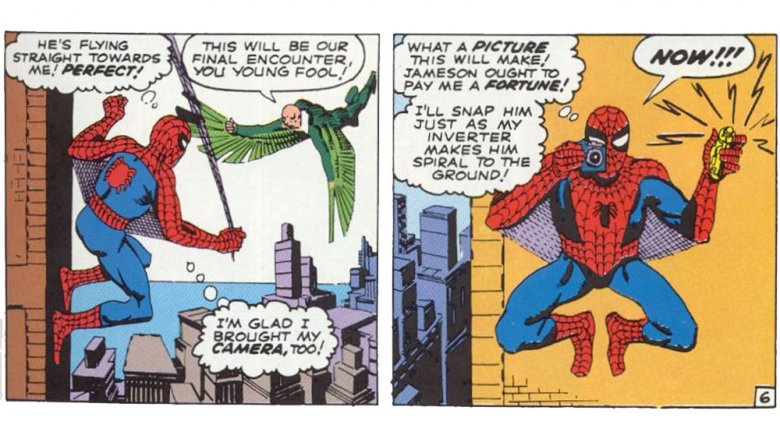ar195815@ohio.edu
Super-human? Maybe. Super-journalist? Probably not.
Red flags wave "conflict of interest," when the reporter is ALSO the source.
The comics, turned movies, Spider-Man highlights the this very journalistic issue. Peter Parker is an average freelance photojournalist by day and Spider-Man by night (sorry to spoil it).
When Parker came across a newspaper ad that asked for pictures of Spider-Man... how could he possibly resist? Not being a full-time photographer for The Daily Bulge, Parker faces pressures to make money through every photo opportunity that arises.
Parker finds himself at crossroads with his own self interest when he doesn't get to pick the headlines of his photos. J. Johan Jameson, the fictional newspaper's editor-in-chief, ironically doesn't particularly see Spider-Man as the perfect hero, which is hard for Parker to be objective about.
"It is essential that we [journalist] preserve a professional detachment, free of any whiff of bias."
When Jameson tells his staff to run the headline as "Spider-Man - Hero or Menace," Parker immediately becomes defensive. Despite his conflict of personal interest, the job (and the money) encourages Parker to keep taking pictures.
Peter Parker isn't the only super hero-journalist who thrives off being extremely close to their source. Of course, there's also Clark Kent.
Clark Kent (aka Superman) and his wife Lois Lane are both journalist at the Daily Planet who face similar conflicts to Spider-Man.
We know from Spider-Man, being your own source is not only a little weird, but also breaches conflicts due to personal interest for Superman.
Though now, we have a different dynamic of this conflict due to Clark Kent's marriage to an award winning Pulitzer-Prize journalist. Having a relationship with her source, Lois Lane runs into conflict time and time again.
"Clearly, romantic involvement with a news source would foster an appearance of partiality."
An anonymous source sends Lois Lane top secret video that regards the public's concern. Publishing the information wouldn't be beneficial to many of the superheroes involved, including her husband.
She ultimately published a story that upset Superman because she decided to put her role as a journalist first - serve public interest. As a journalist and as her husband, Clark Kent respected the decision to run the story.
Although, doing the right and ethical thing would for her to not be involved in the story at all.
"In real life, she would have to confide all this to her editor, tell him who the whistleblower was, and excuse herself from the story because of personal interest."
 |
| Picture source: https://slsblog.tumblr.com/post/158147600938/shes-a-journalist-happy-international-womens |
In both comics, the theme of their conflict of interest is personal interest. Having a close relationship with the source (or being the source) weakens credibility.
Objectivity is ethically ideal and expected in all newsrooms, with the exception of opinion writing or commentary.
The public deserves the news to be presented in an unbiased manner so that the facts are made clear.
So, I think we can all agree that the three journalist I mentioned have poor ethics due to their inability to achieve impartiality because of their conflicts of interest.


No comments:
Post a Comment